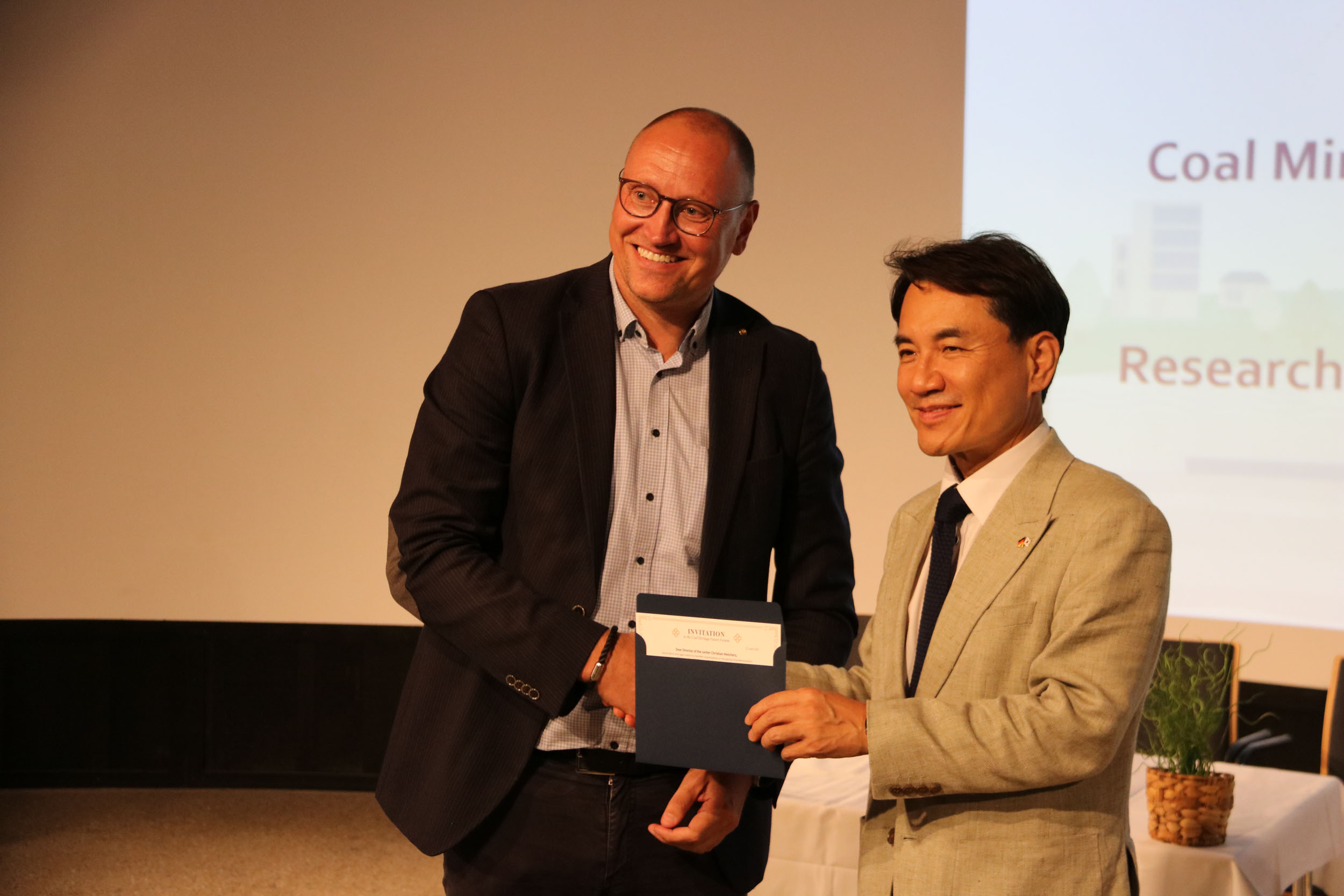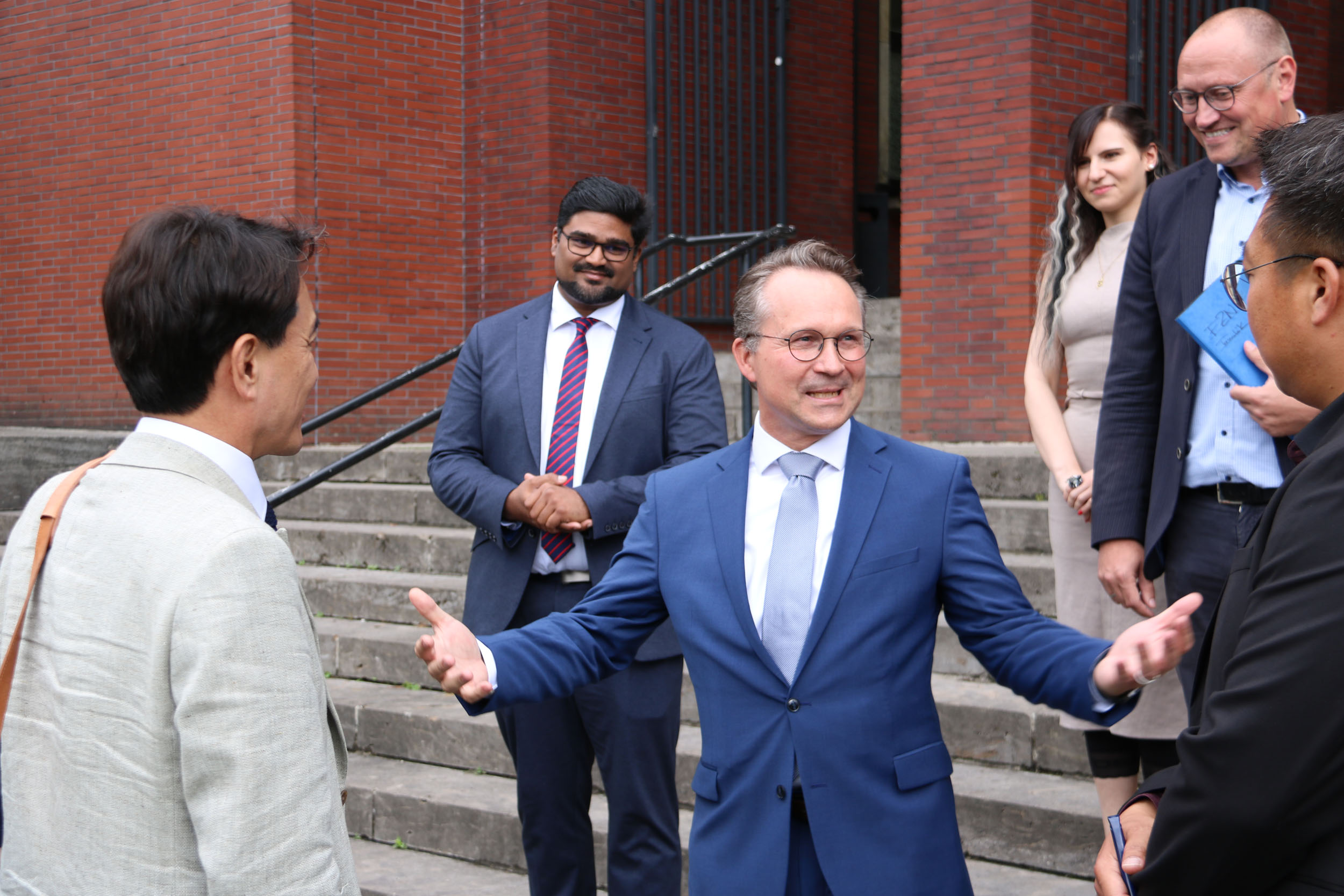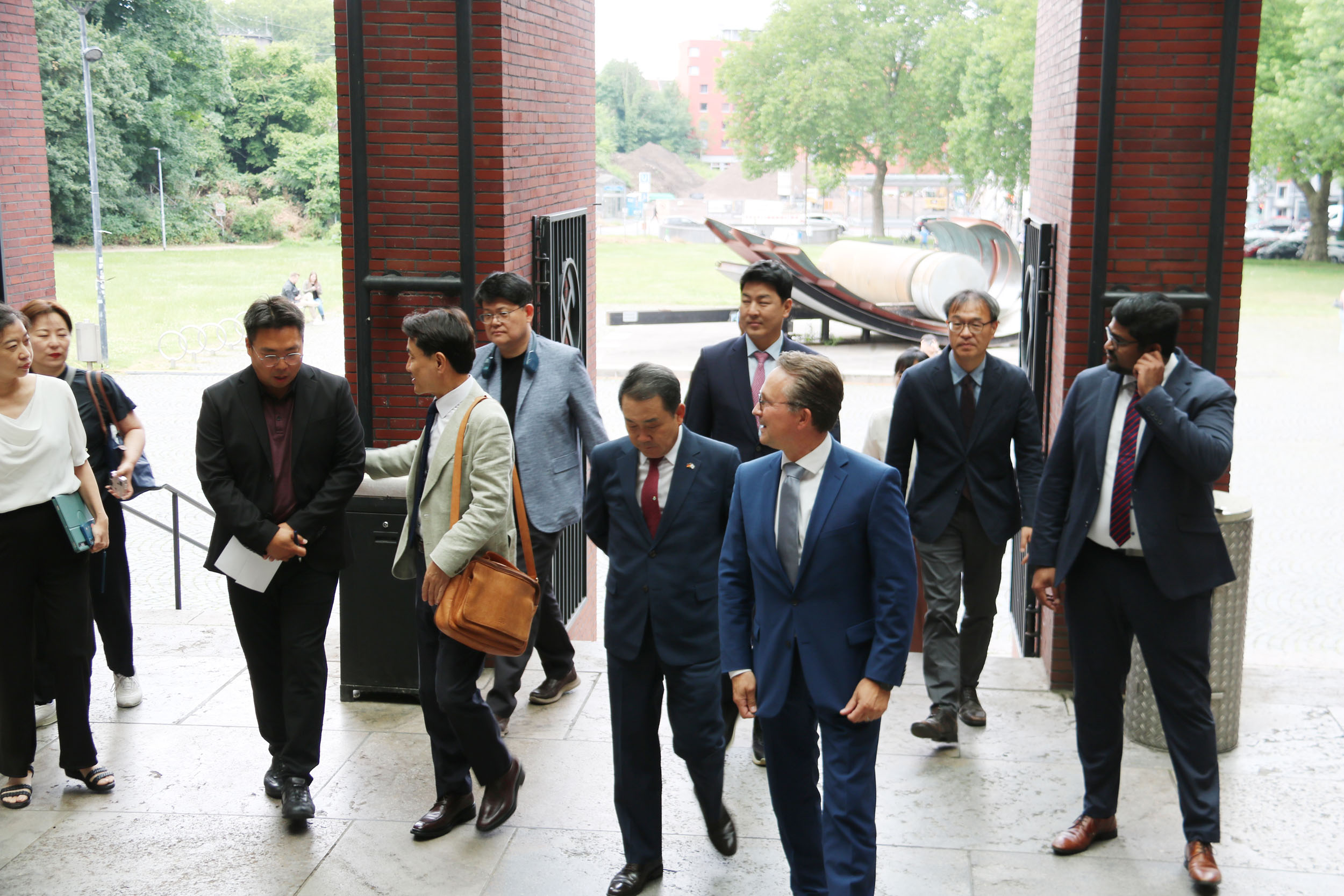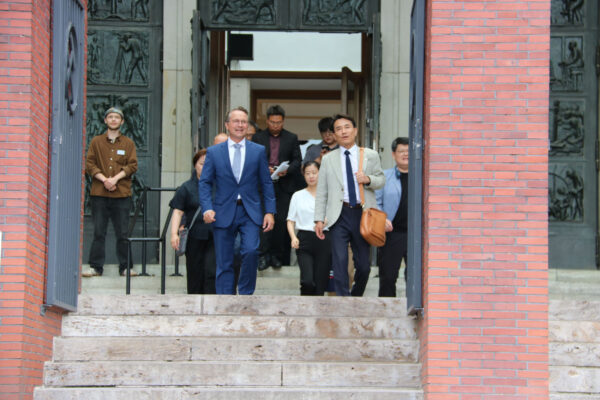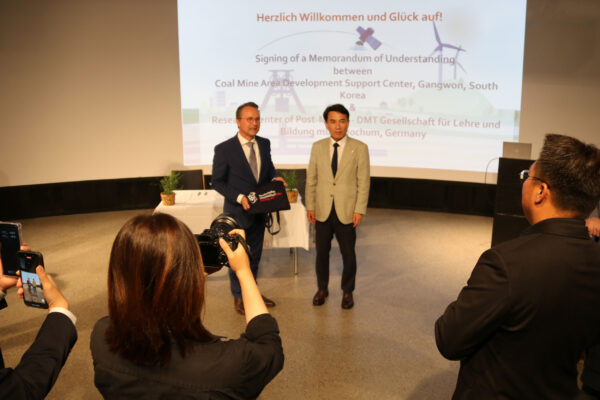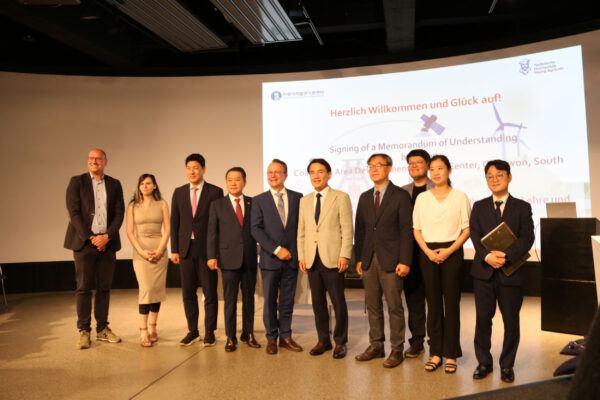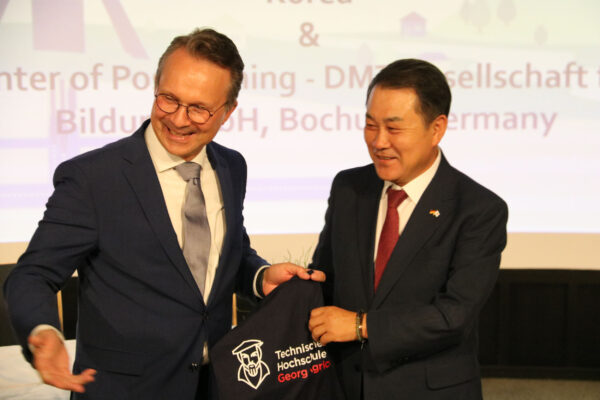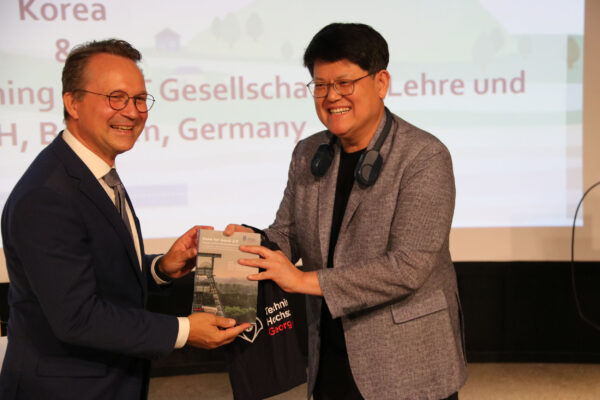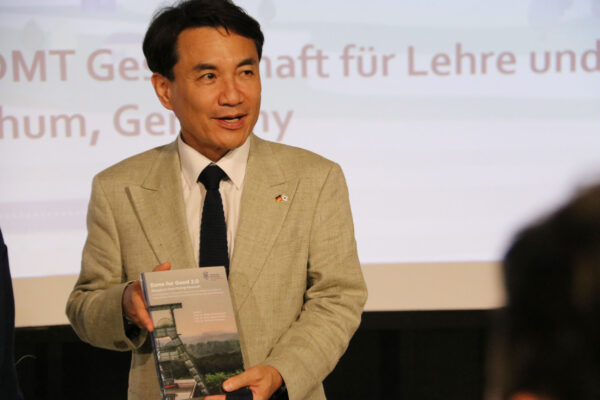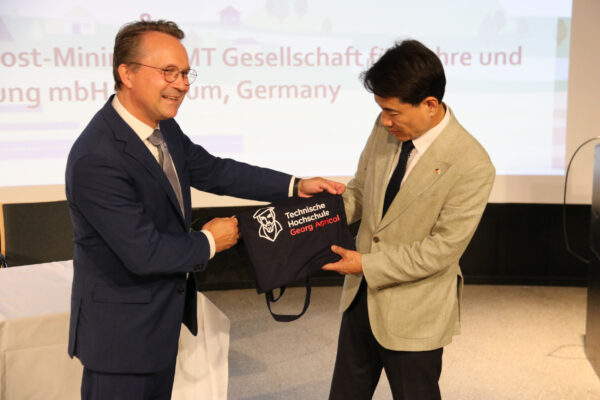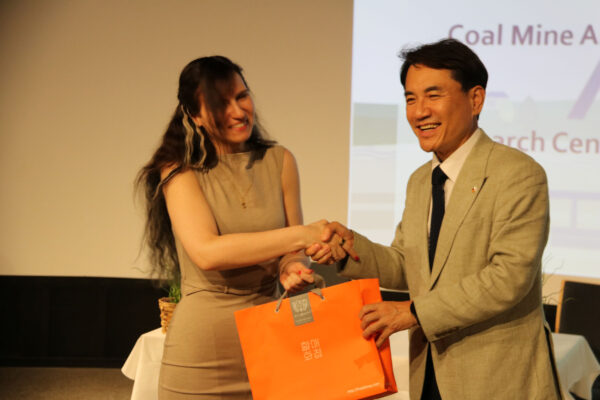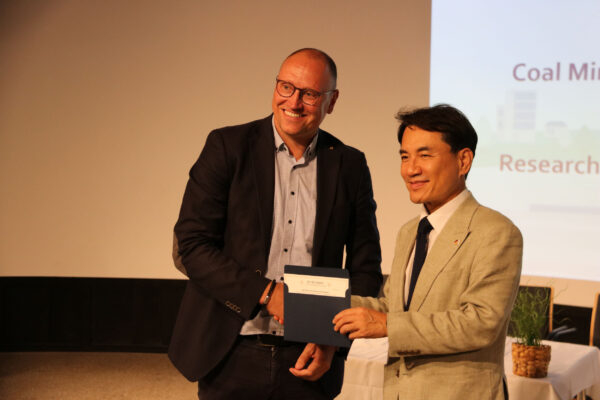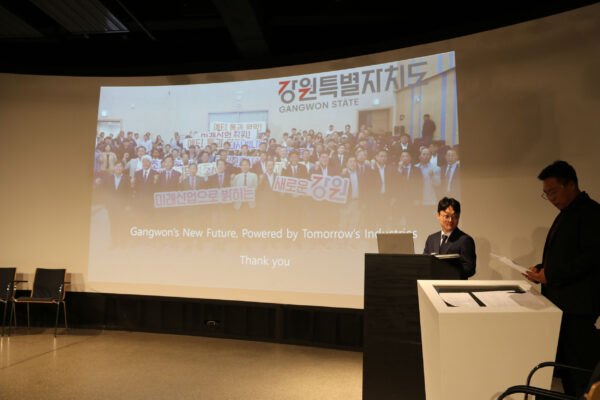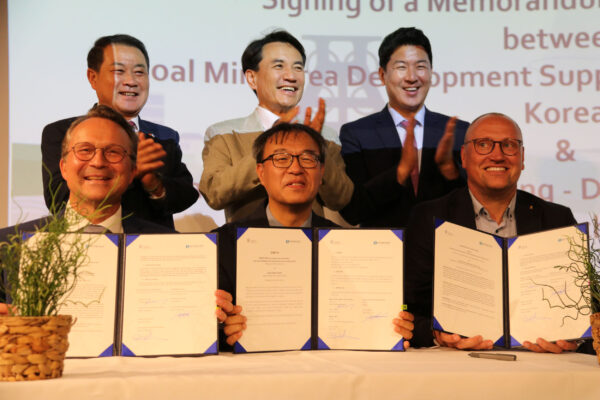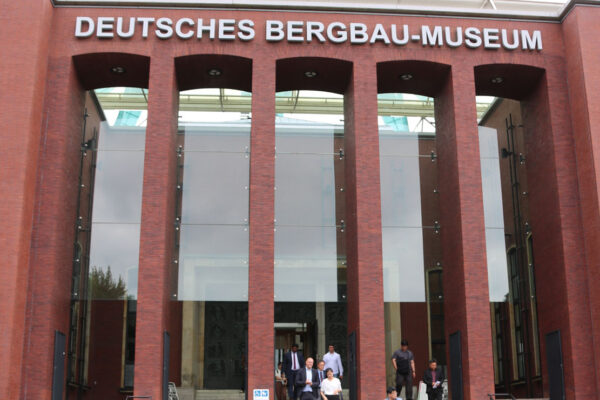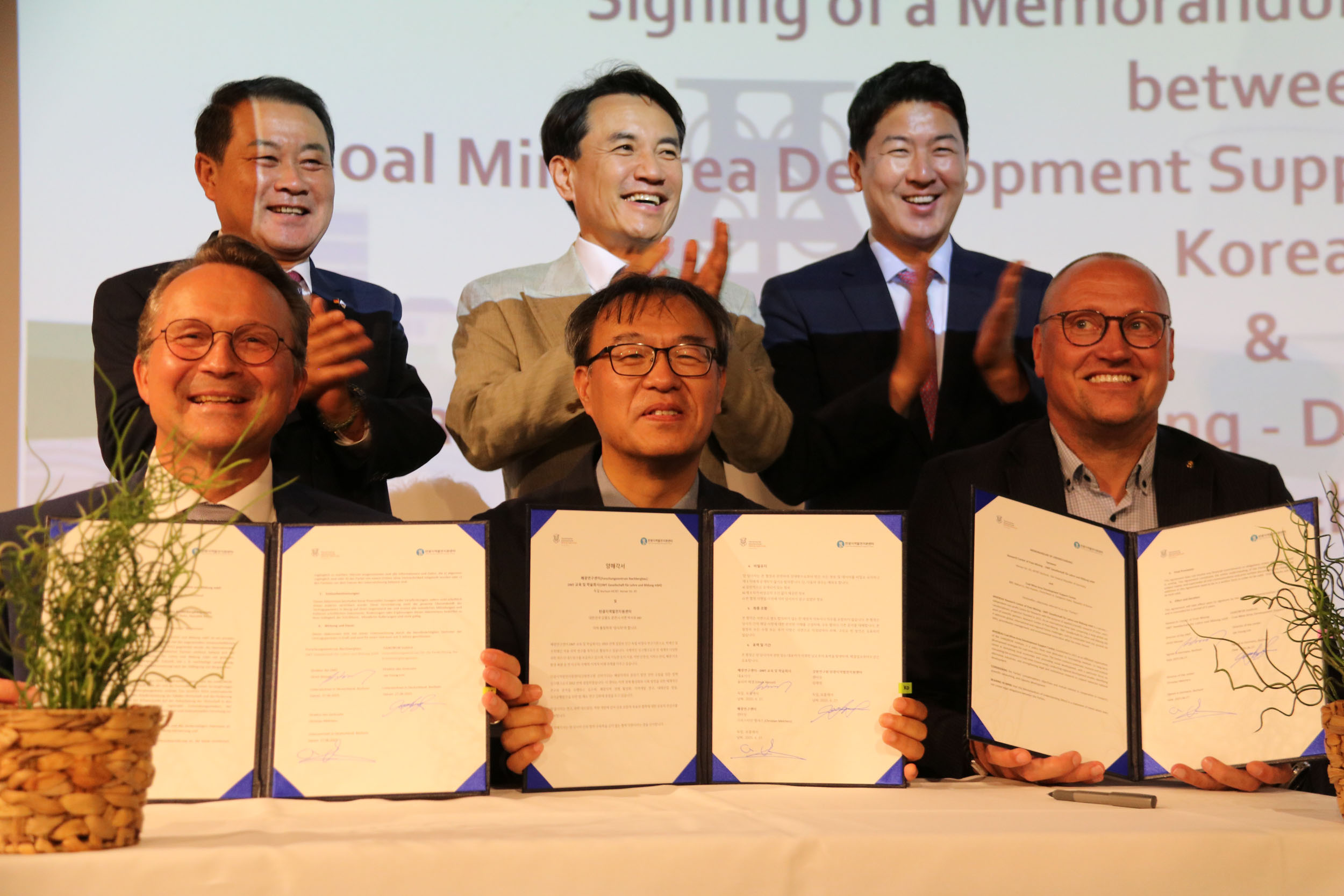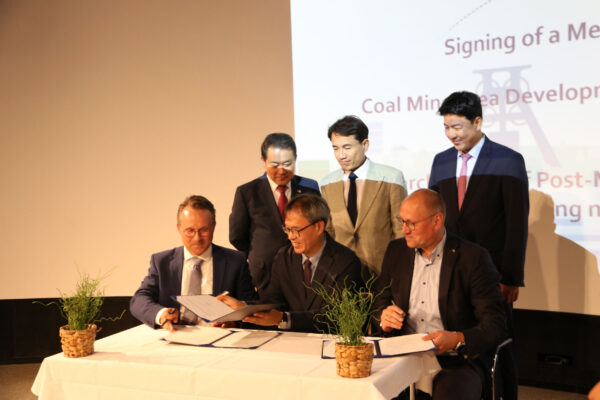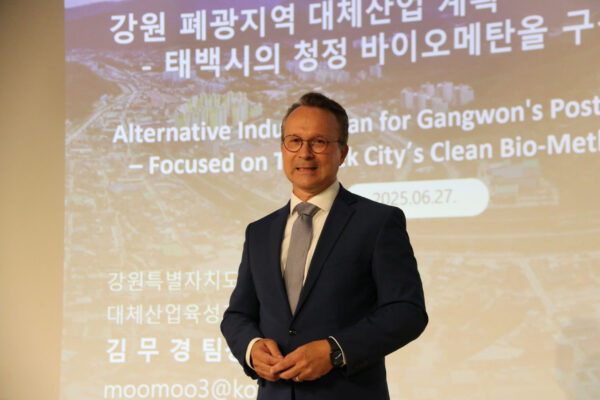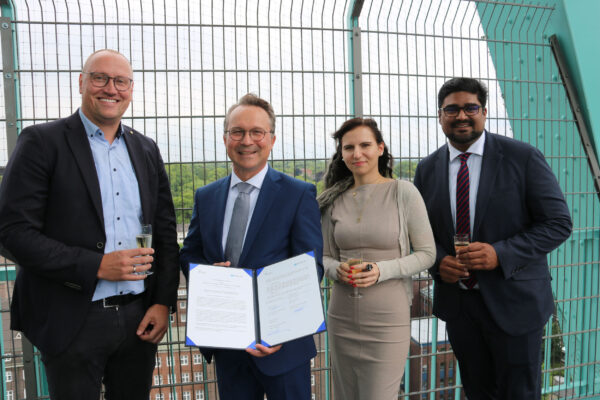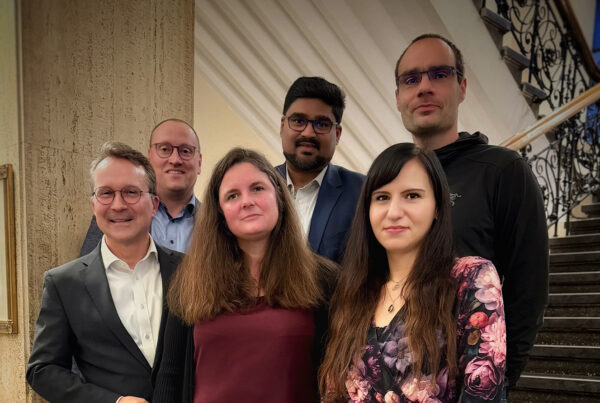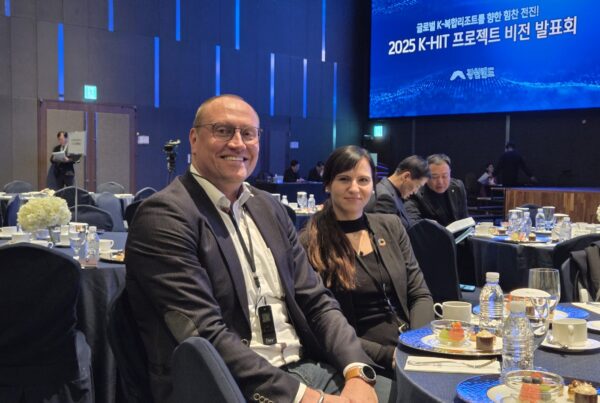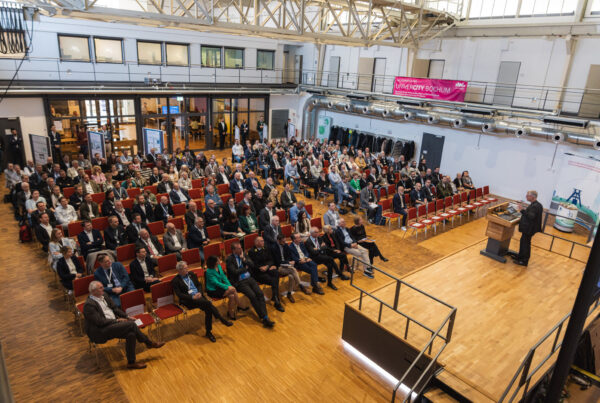Many similarities and overlaps despite the thousands of kilometers of distance between the Ruhr region and South Korea have resulted in a new, strong partnership. During the visit of the delegation led by politician Kim Jin-tae, Governor of Gangwon Province in north-eastern South Korea, a region heavily influenced by mining, FZN and DMT-LB signed a cooperation agreement with the Coal Mining Area Development Support Center of the Gangwon Research Institute.
Similar future tasks and challenges, decades of experience in post-mining and structural change in the Ruhr region and the desire for a strong partnership and continuous scientific exchange led a South Korean delegation from Gangwon Province to Bochum on June 27, 2025. During the visit, the delegation of around 20 people, led by politician Kim Jin-tae and accompanied by South Korean media, got to know the FZN and the Ruhr region. The guests were very interested to see how structural change and post-mining have been lived here - and continue to be lived here.
Für dieses große Interesse am Strukturwandel im Ruhrgebiet gibt es auch einen zeitlichen Anlass:
With the immediate closure of mines in South Korea, the long-standing era of coal mining will have to make way for new economic models that take equal account of economy, ecology, social issues, but also tourism and cultural uses. The closure of the Jangseong mine in Gangwon, the largest coal mine in South Korea, which guaranteed a large number of jobs for decades, illustrates this change of era.
Many similarities and unifying topics
Welcoming guests to the German Mining Museum, Ulrich Wessel (member of the management board of the DMT Society for Teaching and Education) stated: “There are many topics that unite us!”
This concerns not only future tasks, post-mining challenges and the mining traditions of both states, but also a rather unknown chapter in the history of German guest workers. In his speech, Governor Kim Jin-tae referred to the labor migration from South Korea to West Germany. Thanks to a recruitment agreement, thousands of South Korean men ended up in German mines, while South Korean women mainly took up new jobs in hospitals.
The governor and his accompanying delegation from politics and administration were particularly interested in these topics:
- Exchange of knowledge on the development of alternative industries, tourism promotion, environmental restoration in former mining areas at national and local government level
- Job creation measures (development of employment programs, training and educational initiatives)
- Management and promotion of archives on the cultural heritage of mining
- Sharing research results on the transition to renewable energies for clean urban development
The Ruhr region as a place of learning and inspiration for structural change
After the warm welcome of the South Korean delegation by FZN Director Prof. Christian Melchers, Ulrich Wessel (Managing Director of DMT-LB), Julia Haske (FZN research focus Land-Use & Transition) and Dennis Pulimittathu (Department of Internationalization and Partnerships of the FZN), the great interest in the know-how of the FZN as well as in the development of the Ruhr area after the end of mining became immediately clear.
Julia Haske gave a presentation on both the FZN and how the end of coal mining in the Ruhr region was handled. The cultural and tourist reuse of coal mines and mine sites, as Julia Haske illustrated using specific examples such as the Zollverein UNESCO World Heritage Site and the Route of Industrial Heritage, aroused great interest among the guests from Gangwon. The delegation also listened attentively to references to the energy transition, geothermal use of mine water, the new digital economy and the use of resources.
Stronger exchange and more cooperation with the Gangwon Research Institute
Even before the ceremonial signing of the “Memorandum of Understanding”, the declaration of intent for a permanent and close exchange between FZN and the Gangwon Research Institute, the South Korean guests gave a presentation on the status quo in mining, facts about the province of Gangwon and the goals after the subsequent withdrawal from hard coal mining. Decarbonization and environmental goals, the UN Sustainable Development Goals, as well as concrete plans for a new hydrogen and methane infrastructure were discussed.
Great joy about the partnership agreement: Kim Si Sung (Chairman of the Gangwon Provincial Council), Kim Jin-tae (Governor of Gangwon Province), Moon Kwan Hyun (Chairman of the Planning and Operations Committee of the Gangwon Provincial Council) Ulrich Wessel (Managing Director of DMT-Gesellschaft für Lehre und Bildung mbH), Lim Jae Young (Director of the Coal Mine Area Development Support Center of the Gangwon Research Institute), Prof. Christian Melchers (Director of the Research Center of Post-Mining)
The signing of the cooperation agreement between FZN / DMT-LB and the Coal Mine Area Development Support Center took place in a thematically appropriate setting at the German Mining Museum as a festive conclusion, followed by the presentation of gifts by both sides. With the signing of the agreement, a permanent contact and the goal of joint research projects, cooperation in teaching, joint events and exchange programs are now bindingly established.
Photos: Christian Teichmann / FZN
Contact
Christian Teichmann
Technische Hochschule Georg Agricola, University
Herner Street 45
44787 Bochum
Building 2, room 207
Phone 0234 968 3230
Mail Christian.Teichmann@thga.de


